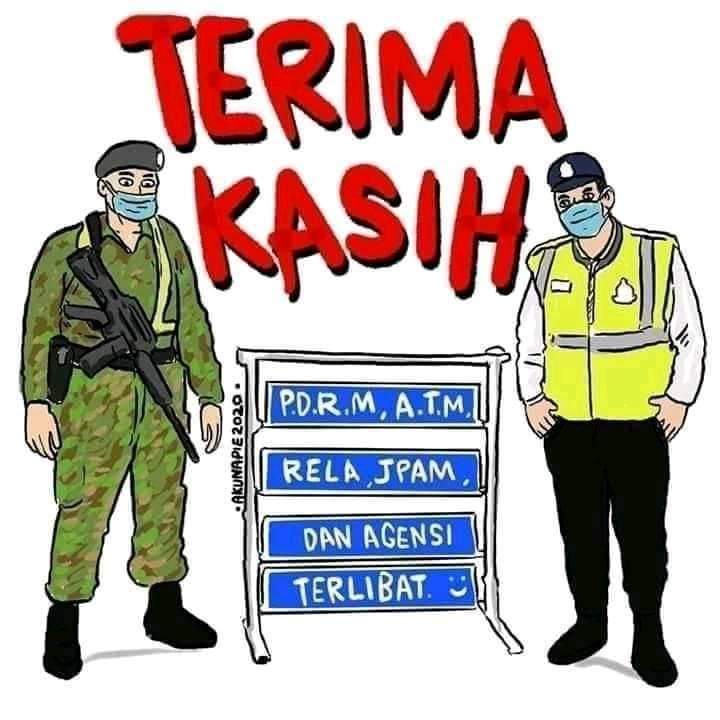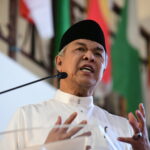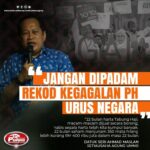THE country has entered the recovery phase of COVID-19 after nearly 3 months spending our lives in the phase of the Movement Control Order (MCO) and the Conditional MCO. Thankfully, the restoration movement beginning June 10 to August 31 has relieved the people of their freedom and permissiveness of operating in almost all sectors, including education and economic.
This phase will also be a measure of how the restructuring of the economic ecosystem can be implemented through the National Economic Restructuring Plan (PENJANA) announced by the government last Friday. Its achievement is a short-term exit strategy to accelerate and revitalize the country’s economy in stages.
For me, what is important is how PENJANA can be ‘people centric’ and able to achieve its objectives in helping out the people without bureaucracy. In general, 40 initiatives worth RM35 billion under PENJANA is an opportunity for the people and industry players to leverage on the economic recovery.
We need to realize that recovering the post-COVID-19 economy is not something that can happen in the short term. New norms of life are also related to the new norms of the economic sector. The exploration of new opportunities, skilled and technologically sound resources in e-commerce is a new norm in the economic sector and it is a necessity, no longer an option.
People and countries need to be prepared to face any possible consequences of the recent economic downturn, according to a statement issued by the International Monetary Fund (IMF). “The global economy may have experienced the worst recession since the recession in the 1930s, and far worse than the global financial crisis in 2009 ”.
Our country is also no exception to the economic downturn. Bank Negara Malaysia (BNM) expects the Malaysian economy to grow at between -2.0 per cent and 0.5 per cent this year. There is no denying that many of the people are struggling to manage their finances, which has an impact on their personal and family well-being.
The results of an online survey (round 1) of the Department of Statistics to evaluate the effect of COVID-19 on the economy and individuals for the period between March 18 and 31, involving a total of 168,182 respondents aged 15 years and above found that 71.4 per cent of them were self-employed and enough savings for less than a month.
Meanwhile, 82.7 per cent of the respondents among the private workers were found to have sufficient financial savings over the two months.
This finding clearly shows that PRACTICE can be a short-term solution for people, especially employers and small and medium-sized enterprises (SMEs) covered by anxiety due to financial stress over declining sales revenue, loss of income and cost surplus operations.
The initiative made through PENJANA is also in line with the concept of Islamic economy and Maqasid which emphasizes the four essential essence of safeguarding human and people’s well-being:
Jalb al-Masalih: Achieving importance in life.
Dar Al-Mafasid: Resist the damage that will befall society.
Sadd al-Dharar: Blocking the interests of evil.
Tagayayur al-Zaman: Focuses on the factors of circulation.
In addition, the response and frame of mind of individuals, groups and people to the environmental changes caused by the COVID-19 pandemic are also important in ensuring extreme anxiety and financial stress can be overcome.
According to Professor Dr Carol S. Dweck, a psychologist at Stanford University in the United States in her book Mindset, “there are two conceptual frameworks that determine the patterns and patterns of human perception when interacting with their environment. The first is a fixed, enclosed and fixed mindset (while the second is a dynamic, sprouting and growth mindset) ”
The fixed mindset considers the changes and new norms of COVID-19 pandemic as a catastrophe and turmoil that had led to the economic recession and the destruction of their routine lives. Meanwhile, the growth mindset sees the change in the pandemic as a space and their opportunities for improvement towards a better life are adapted to new norms and needs.
These opposing perceptions come from different perspectives, depending on the level of acceptance of the COVID-19 pandemic and the economic and national recession. In order to ensure that the government’s efforts to restore the country’s short-term economy succeed through PENJANA, the people’s thinking framework must also be in line with this effort.
I would recommend to relevant ministries and agencies to expand their programs and informational sessions on E-commerce through electronic and face-to-face media, such as regularly meeting small and medium-sized industry players providing advice on financial management, business and motivation. It is not an easy thing to “fix things and get things right”, but it is not impossible.
AHMAD ZAHID HAMIDI
UMNO President







